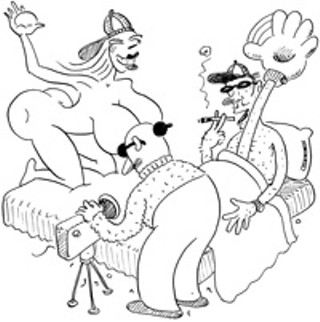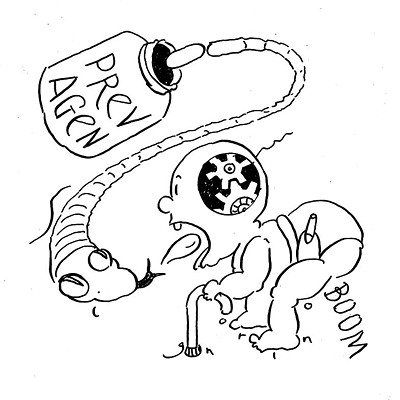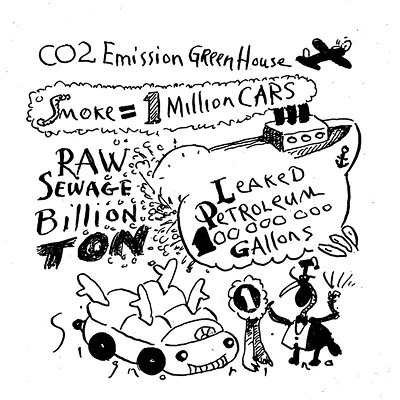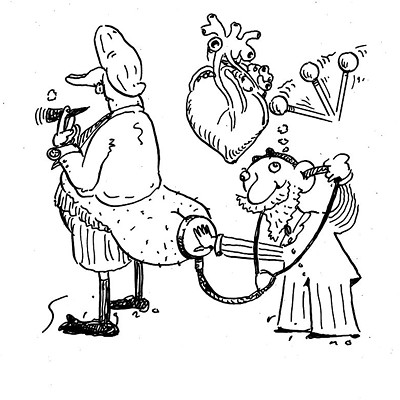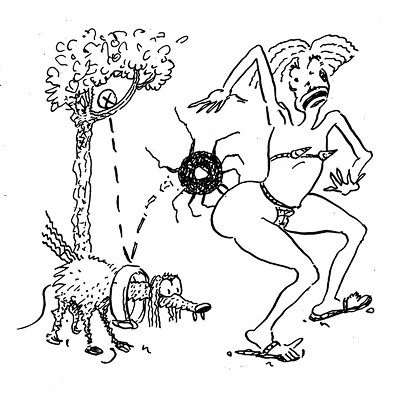Why is it that if you film an act of prostitution and call it porn, suddenly it’s legal? The only difference I can see is that the male performer is also being paid, but that can’t be the case for all pornography. —Adler, Toronto, Canada
Imagine the arraignment: The prosecutor says, “Your honor, the video recording in question shows defendants Mr. Long and Ms. Luvzit engaging in coitus in what appears to be a baseball dugout. Defendant Luvzit is wearing a cap, stirrup socks, and cleats, while defendant Long is dressed in the top half of an umpire’s uniform. After several minutes of explicit sexual activity, during which time defendant Luvzit is heard to moan, yell, and exhort defendant Long to continue (repeatedly complimenting him on his “command of the strike zone”), defendant Long withdraws and ejaculates in full view of the camera.”
The judge looks over to the defendants, whose lawyer leans back with his hands behind his head and exclaims with satisfaction, “Now, that’s acting!”
Cecil jokes, Adler, but it’s for your own good. You’re not the first to propose this ingenious legal theory. Back in the 1980s some law-enforcement types in LA got the bright idea that they could use California’s pandering statute to run pornographers out of town. Instead, they established a legal precedent that enshrined their state as the porn capital of the U.S.
The case in question involves porn producer-director Hal Freeman, auteur of more than 100 full-length classics including the immortal Caught From Behind. In 1983 he made Caught From Behind II: The Sequel, and was charged and convicted under California’s pandering law, which makes it a felony to “[procure] another person for the purpose of prostitution.” But in 1988 his conviction was overturned by the California Supreme Court, which cited precedent establishing that “for [an act] to constitute ‘prostitution,’ the genitals, buttocks, or female breast, of either the prostitute or the customer must come in contact with some part of the body of the other for the purpose of sexual arousal or gratification of the customer or of the prostitute” [emphasis added].
The court found that the “payment of acting fees was the only payment involved in the instant case. . . . There is no evidence that [Freeman] paid the acting fees for the purpose of sexual arousal or gratification, his own or the actors’.” Thus, no prostitution.
Besides, the court went on, “even if [Freeman’s] conduct could somehow be found to come within the definition of ‘prostitution’ literally, the application of the pandering statute to the hiring of actors to perform in the production of a . . . motion picture would impinge unconstitutionally upon First Amendment values.”
So Freeman’s conviction was overturned, and making porn was legalized in California. Producers who once filmed surreptitiously in motel rooms were free to shoot with good lights and no fear of arrest. Another triumph for the storied LAPD.
Not all jurisdictions define prostitution as narrowly as California does. Next door in Arizona, for example, prostitution law was for years written to prohibit “engaging in or agreeing or offering to engage in sexual conduct with another person under a fee arrangement with that person or any other person.” In 1990 an Arizona appeals court thus upheld the prostitution conviction of Laure Taylor, who performed in a peep-show theater visited six times by Phoenix undercover police.
Then there’s the case of Tom and Suzi Wahl, a married couple from Lake Saint Louis, Mo. In 1992, the year after they were busted for selling pornographic videos (the raid was later ruled illegal), Suzi applied for the job of police chief, and in 1997 Tom ran for mayor. In 2001 they were arrested and convicted of prostitution by undercover cops attending one of their “educational” sex performances. According to the Missouri statute, “a person commits prostitution if he engages or offers or agrees to engage in sexual conduct with another person in return for something of value to be received by the person or by a third person.”
However prostitution is defined, courts are reluctant to restrain pornographers because of the First Amendment complications. A publicity-crazy lawman can always make arrests, but it’s foolish to do so without ironclad statutory language.
As it stands, there’s a big sign over California saying “PORN PRODUCTION LEGAL HERE.” Only an idiot, a porn lover, or perhaps an Illinois governor would risk erecting another sign saying “HERE TOO.” cs
Comments, questions? Take it up with Cecil at straightdope.com.or write him at the Chicago Reader, 11 E. Illinois, Chicago 60611. Cecil's most recent compendium of knowledge,Triumph of the Straight Dope, is available at bookstores everywhere.
